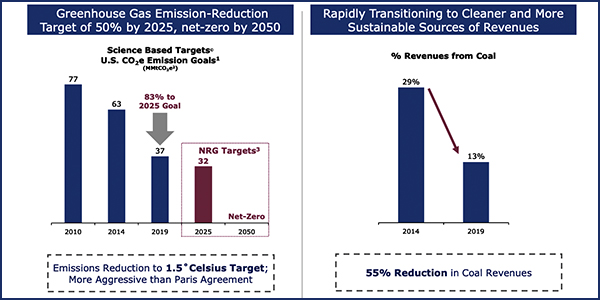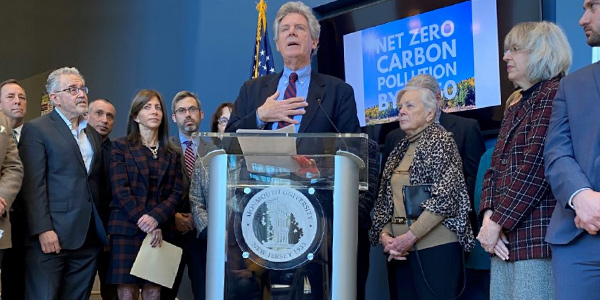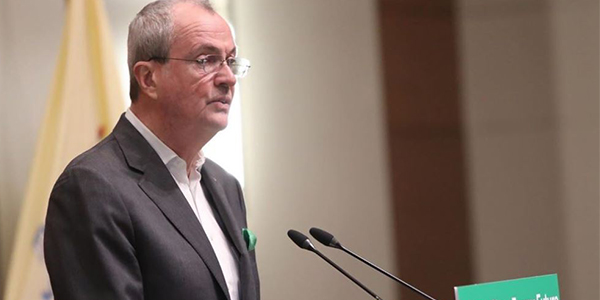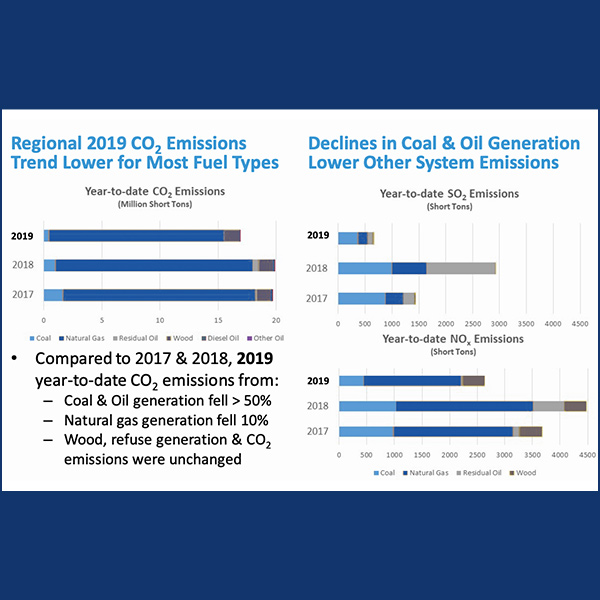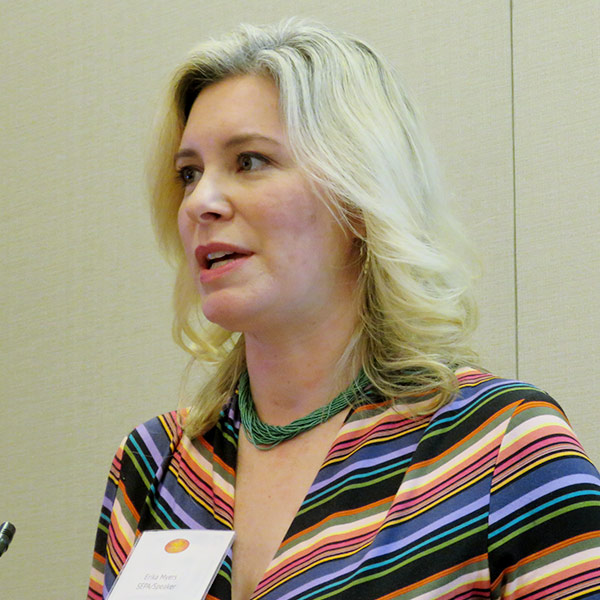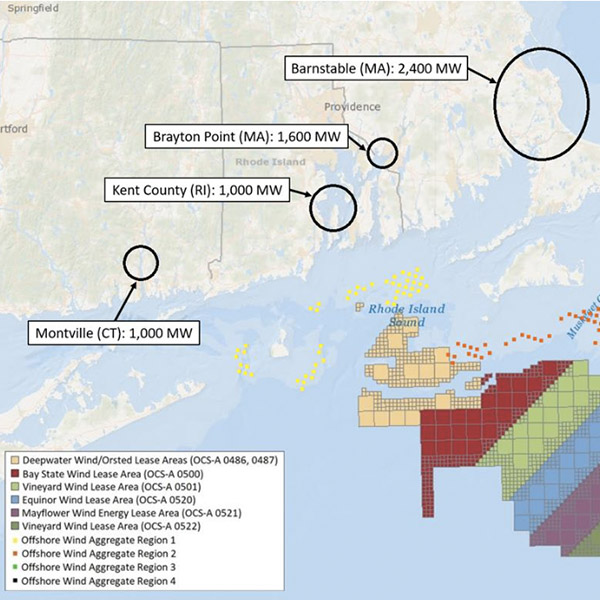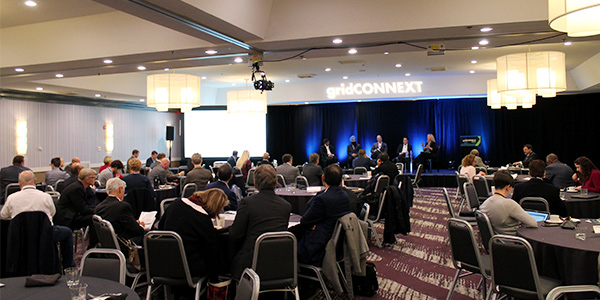carbon emissions
Speakers at the ACORE Policy Forum said messaging for action to address climate change should emphasize the economic benefits of clean energy industries.
NRG reported a 2019 operating income of $4.1 billion, compared to $460 million last year, driven by the release of a $3.5 billion tax valuation allowance.
Among provisions in a draft bill released by House Democrats, intended to reduce emissions by 2050, is a requirement for utilities to join an ISO or RTO.
New Jersey Gov. Phil Murphy outlined how the state will meet its goal of 100% “clean energy” and an 80% reduction in greenhouse gas by 2050.
ISO-NE is incorporating stakeholder comments and questions from last month's PAC meeting as it works to complete its 2019 Economic Study in stages.
The electrification of buildings is receiving increased attention in 2020, as several cities consider banning using natural gas for heating and cooking.
Dominion Energy discussed the ways it is decarbonizing and electrifying in order to stay competitive at Raab Associates’ Energy Policy Roundtable.
Princeton professor Jesse Jenkins opened a Raab Roundtable with a sobering look at the dramatic changes needed to avoid the worst impacts of climate change.
New England’s carbon emissions could decrease by a 1.45 million short tons per 1,000 MW of offshore wind capacity added, according to a NESCOE study.
A sense of urgency permeated much of the discussions at this year's gridCONNEXT, as speakers said the world is way behind on its decarbonization goals.
Want more? Advanced Search

